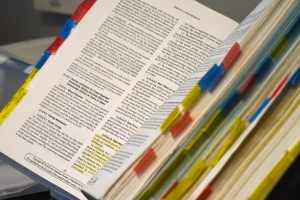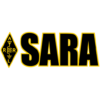Repeater Code of Conduct
The SARA repeaters are covered by the following Code of Conduct:

- Follow the Golden Rule – “Do to others what you want them to do to you”
- Don’t be an idiot
- Remember that you’re not the only repeater user
- Follow key FCC regulations for repeater use. Identify with your callsign every 10 minutes and at the end of traffic. When identifying, use your complete callsign.
- Yield to emergency transmissions – i.e. “break break break”
- All casual traffic will yield to scheduled nets
- Use of the digital linking functions (e.g. Allstar, Echolink, etc.) will be treated identically to RF transmissions
- Do not use digital linking functions to connect other nets to the repeater during regularly scheduled nets and events
- When using a digital linking functions, avoid quick-keying. This is always a good practice, but it’s much more important with network-connected nodes.
- Leave at least a second after you hear the telemetry tone of the last transmission before you key up.
- Repeaters will have different courtesy tone lengths and hang times
- Listen before you transmit after linking repeaters – be courteous about interrupting an in-progress QSO on a remote system. Rule #1B.
- Be smart about linking up a big Allstar network mesh or a busy net. Rule #1B.
- When you are finished with your QSO that took place on an Allstar network, please immediately terminate the connection. Rule #1B.
- Never purposely “double” with somebody that is transmitting; this is not the way to correct the actions of an offender. Instead, give some constructive criticism as appropriate, perhaps off-the-air.
- While SARA generally respects free speech, there will be no tolerance for harassment, racism, vile language, obnoxious “band policing”, or persistent rude behavior. Rule #1A.
- The DMR, D-STAR, and YSF linking facilities are for active users who wish to link to other repeaters and groups. Do not key up a popular talkgroup such as DMR TG91 or YSF AmericaLink just to listen. If you want to just listen long-term, buy a hotspot.
Users that persistently violate these codes may be asked to not use the repeater as permitted under CFR 47 Part 97.205 (e). Persistent or egregious misuse will be pursued with the ARRL Volunteer Monitoring System and the FCC for disciplinary action.
Net and Net Control Standards
Radio Nets (“Nets”) and Net Control Stations (“NCS”) are a highly visible part of the Silvercreek Amateur Radio Association and how nets operate and NCS behave has a significant impact on the public perception of our organization. The following rules and guidelines apply to all Nets and NCS along with the Constitution, Bylaws, and Repeater Code of Conduct.
- Local RF use of the repeater is always prioritized over any linking technology for scheduling and planning purposes.
- No formal directed Net may be held on W8WKY 147.390 without the permission of the SARA Executive Committee. This includes network-based linking to non-SARA-related directed nets held on other repeaters or conference hubs.
- SARA recommends that all NCS perform a system/signal check before the start of a formal club Net. This ensures that Net Control Stations are present, functioning properly, and ready to go when the Net begins.
- Directed nets may be linked on demand on W8WKY 442.275 subject to the prioritization of local RF traffic and so long as the Technical Committee does not object.
- For any Net held as a locally originated net (i.e., a “SARA-branded Net”), all NCS must be members in good standing of SARA. A non-member NCS may be permitted only with the express permission of the SARA Executive Committee.
- All NCS must uphold the dignity and objectives of SARA. This includes SARA’s welcoming attitude to all hams, support of new hams, and keeping a professional, helpful attitude to all hams who may struggle with the processes and procedures of a Net. At its sole discretion, the SARA Executive Committee may remove an NCS from a Net.
- No NCS is empowered to ban or ignore any properly licensed operator on any Net. Malicious interference [as described by 47 C.F.R. § 97.101(d)] or persistent misbehavior on the air should be ignored and, if it is not reasonable to ignore the behavior and still hold a Net, the Net should be terminated by the NCS. In severe cases of malicious interference, the Operations Manager or a member of the Technical Committee should be contacted immediately to shut off the repeater as a function of the control operator.
- Any persistent misbehavior or malicious interference [47 C.F.R. § 97.101(d)] should be referred to the Operations Manager and/or the President for further action. NCS are not empowered to take unilateral disciplinary action. NCS should record the time(s) and note the nature of the behavior or interference in the report so that audio archives can be retrieved and examined when available. The SARA Executive Committee reserves the sole right under 47 C.F.R. § 97.205(e) to restrict use of the repeaters and, by extension, the Nets on the repeaters.
